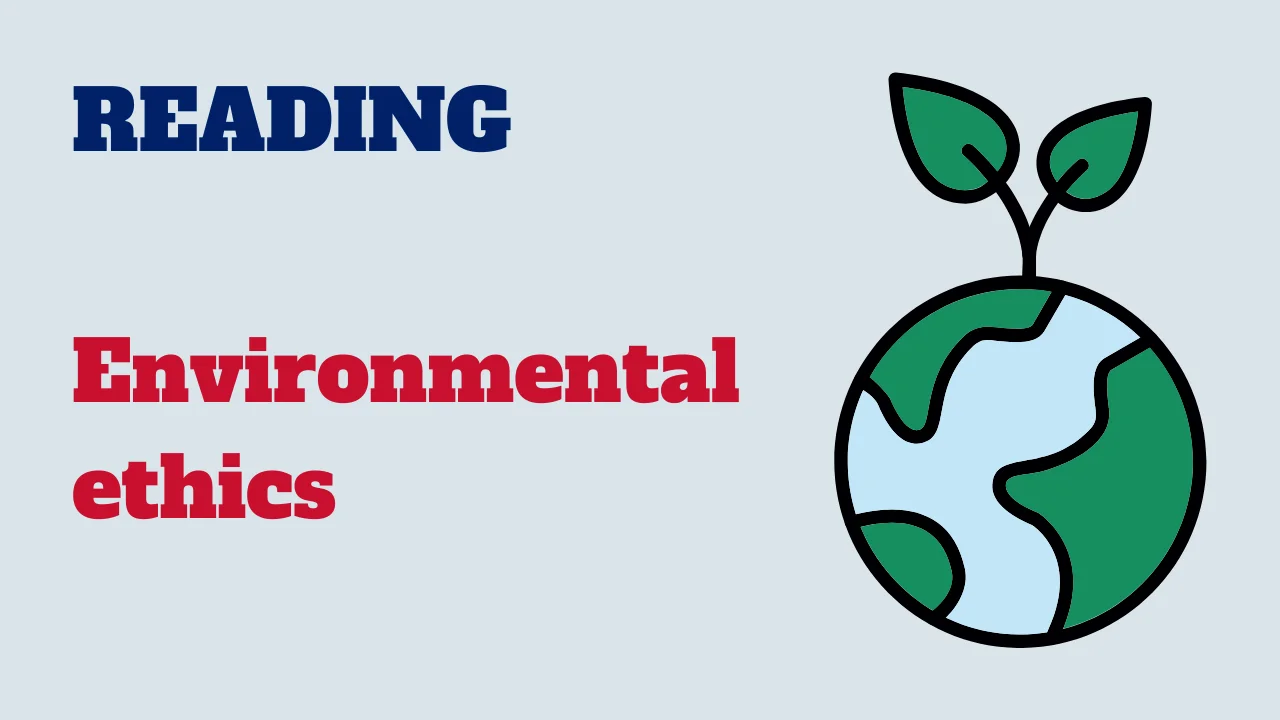Welcome to a new passage about environmental ethics! In this reading activity, we’ll delve into the field of practical philosophy that addresses the essential arguments for protecting natural entities and promoting sustainable use of natural resources.

From competing paradigms to ethical dilemmas and influential events, we’ll uncover the key aspects of environmental ethics.
Text: Environmental ethics
Environmental ethics is a branch of philosophy that examines the moral relationship between humans and the natural environment. It explores the ethical principles guiding our interactions with the environment, questioning how we ought to behave concerning the non-human world and what moral obligations we have towards it.
The field emerged prominently in the 1970s, influenced by growing environmental awareness and movements advocating for conservation and sustainability. Central to environmental ethics is the challenge of expanding traditional ethical considerations, which often focus solely on human interests, to include the broader ecological context.
One foundational concept in environmental ethics is anthropocentrism, the belief that human beings are the central or most significant entities in the world. Critics argue that this perspective justifies exploiting natural resources for human benefit without regard to environmental harm. In contrast, biocentrism and ecocentrism promote the intrinsic value of all living beings and ecosystems, respectively, suggesting that nature has moral worth independent of its utility to humans.
Philosophers like Aldo Leopold, in his seminal work “A Sand County Almanac,” advocate for a land ethic, emphasizing a community-based approach where humans are part of a larger ecological system. Leopold’s idea that “a thing is right when it tends to preserve the integrity, stability, and beauty of the biotic community” encapsulates this holistic view.
Deep ecology, a movement founded by Arne Naess, further pushes for profound changes in human consciousness and lifestyle to align with ecological balance. It promotes principles like biodiversity, sustainability, and the reduction of human impact on the Earth.
Environmental ethics also addresses contemporary issues such as climate change, habitat destruction, and species extinction. It encourages sustainable practices and policies that consider the long-term health of the planet, advocating for a balance between development and conservation.
In practice, environmental ethics influences laws, policies, and individual behaviors, fostering a more sustainable and equitable relationship with the natural world. By challenging us to consider the moral implications of our actions, environmental ethics plays a crucial role in guiding efforts to protect and preserve the environment for future generations.
Comprehension questions
Congratulations on completing the examination of environmental ethics! By studying the key concepts, paradigms, and historical developments in this field, we gain valuable insights into the ethical dimensions of human interactions with the environment. Let us continue to reflect on our environmental responsibilities and strive to promote sustainability and conservation in our actions and decisions.



